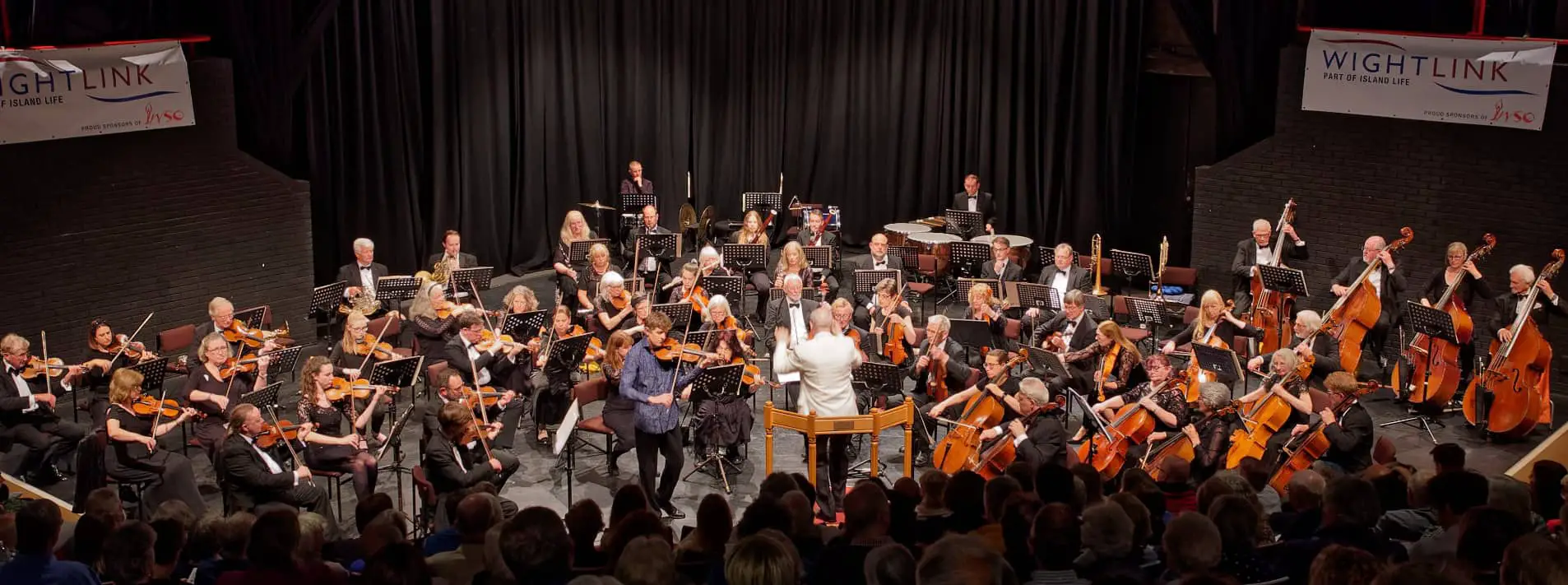Jonathan Dodd shares his review of the latest Isle of Wight Symphony Orchestra (IWSO) concert. Images with kind permission of Luke Meads. Ed
Last Sunday the Isle of Wight Symphony Orchestra performed a concert that surprised and delighted me. I’m often delighted by the music that the IWSO offers me, and I always appreciate the quality of their playing and the sheer delight of being present whilst the music is played, rather than listening at home or on my earphones.
There’s a charge in the air, and I love experiencing all those wonderful musicians focusing their entire attention on the music itself, and working selflessly to produce the best experience possible. It’s always a thrill to be there.
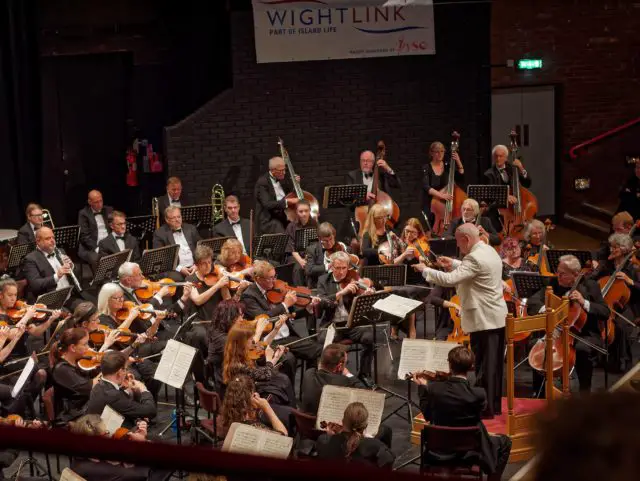
Occasionally, however, the experience becomes transcendent, and the IWSO goes beyond my expectations, and produces something I hadn’t expected, or something that I had never heard before. Sometimes they deliberately step right out of their comfort zone and go for broke with a piece you wouldn’t have expected, and they give a totally committed performance which becomes a triumph. And I love them for that.
Scenes Pittoresques
The concert started with a suite by Jules Massenet called Scènes Pittoresques. I was only familiar with some of his more meditative pieces, and didn’t know this work.
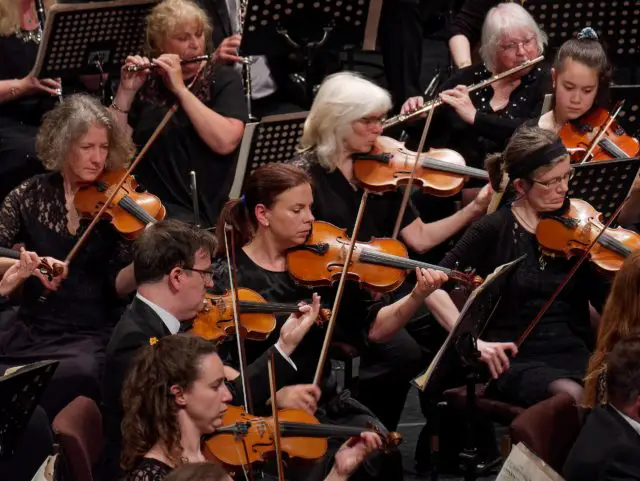
It was composed in 1874, and was very popular. The orchestra attacked each movement from the start, bringing out the character of each movement, from the initial march to a dance tune, then the solemn Angelus with its hints of evenings and the tolling of bells, and finally the Bohemian Dance with its vigorous rhythms and quieter moments. It was invigorating, and a great start to a wonderful evening.
Kliphuis magic
After a little rearrangement of seats, the orchestra prepared for the ‘Ulysses’ violin concerto by Tim Kliphuis, named for the book by James Joyce, because it’s like an inner dialogue, roaming freely through many thoughts and ideas. I could tell from the excitement emanating from the whole orchestra that something special was coming. Mr Kliphuis leapt onto the stage, a figure full of energy and excitement, and beamed at everyone. He showed no nerves at all, just a pure joy in being able to perform.
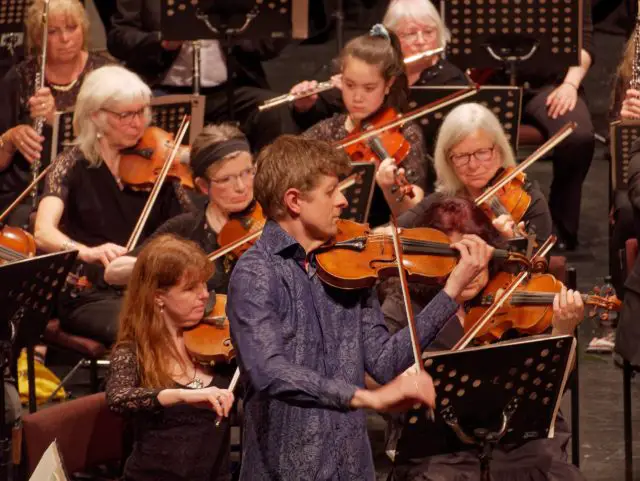
The concerto began quietly, with a lovely haunting tune and some lively and unexpected accompaniment from the orchestra, and then became a virtuoso performance of huge variety and musical delight, led by Mr Kliphuis and his violin, through a journey of what seemed to me to be every kind of violin playing that I ever heard, plus many I hadn’t even imagined.
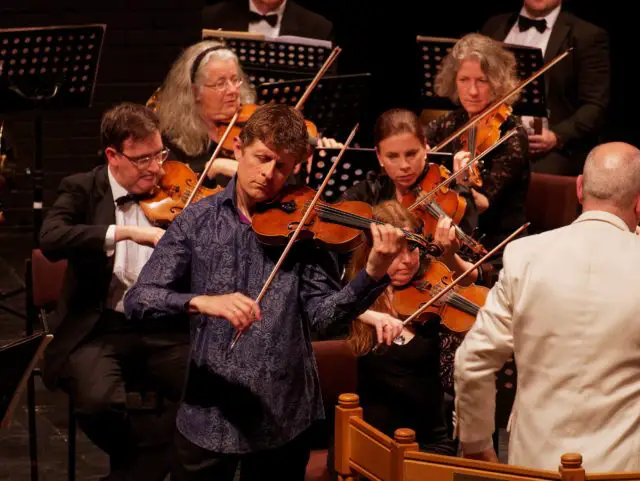
As I sat and listened, entranced and utterly attentive, I loved every single moment and every single note. I knew that there was improvisation, but the soloist and orchestra were so entwined with each other that I couldn’t tell where. I heard echoes of folk music, many varieties of jazz style, film score sounds, dance bands from each decade, much classical orchestration, and a host of other influences, which I would need many listenings to capture. But the over-riding emotion I felt was wonder, because it was so fresh and light and somehow juicy. I don’t have the language to explain how it made me feel.
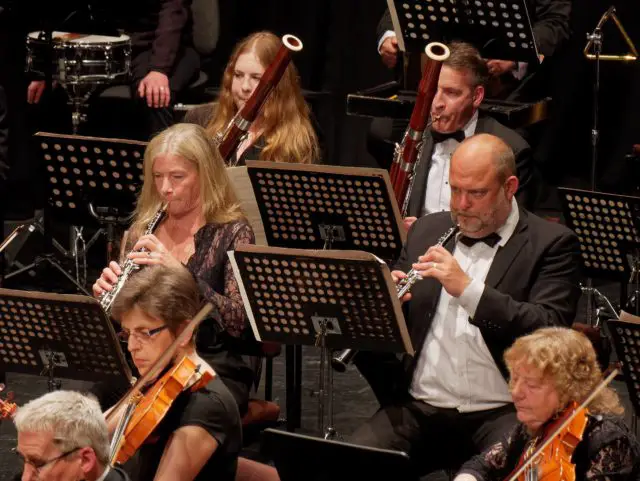
The violin playing was impeccable, with so many highlights and varieties of expression, each delivered with precision, whether in a traditional way, or even thumb-plucked like a ukulele, with accompanying foot-tapping and head-nodding, like a rock soloist. The orchestra had to accompany all of this somehow, and did so with extraordinary aplomb, whatever mode was required. It was astounding, and I wanted it to go on, and on. When the last note died away, the audience and the orchestra gave thunderous applause, and when it was over, all the people around me were exclaiming how wonderful it was, and how unexpected, and how brilliantly it was played.
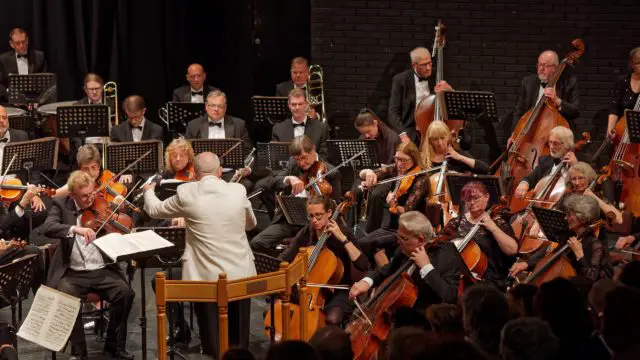
I would like to single out some of the exceptional performances by the musicians, but the truth is that I would have to mention all of them, because they played their socks off. I loved it, and please ask Tim Kliphuis back, because he was, and is, brilliant. He performed a short encore, the Souvenir De Villingen by Stephane Grappelli, and explained that he fell in love with Grappelli’s music, then met the man himself, who told him he should make his own music. I’m so glad he did, although he still can turn out a great Grappelli tune.
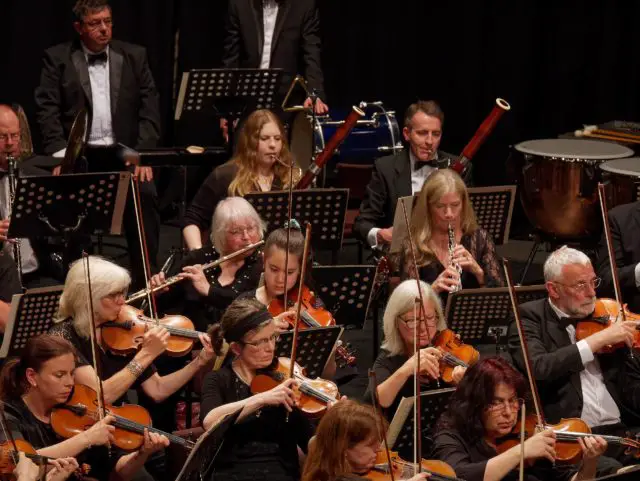
If you ever get the chance to hear this music, or see it played live, I thoroughly recommend it. It’s sensational. Thank you IWSO, for surprising and delighting me so thoroughly.
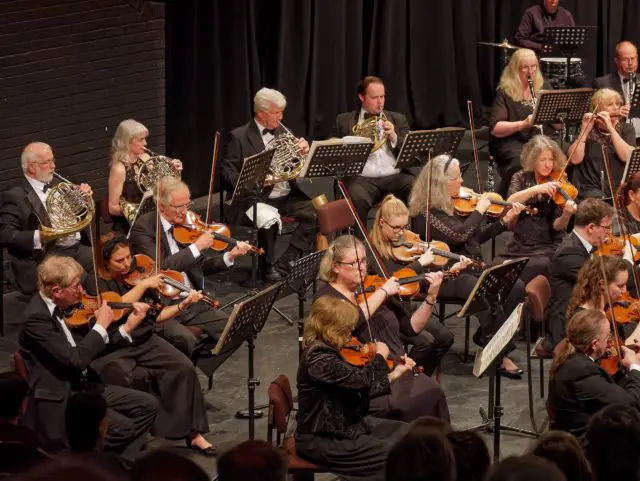
Becoming Brahms
After that, the interval was welcome, so I could absorb my reactions. Then the orchestra settled down to a more traditional work. Johannes Brahms Symphony No. 1 in C minor. I admit that I’ve never been attracted to the great symphonies of the Nineteenth Century, perhaps because I’ve never studied or listened to them enough. This performance went some way to convert me. Brahms took a long time to write it, finishing it in 1874, and it’s delightful. It’s lighter than later symphonies. I noticed the small number of percussion players.
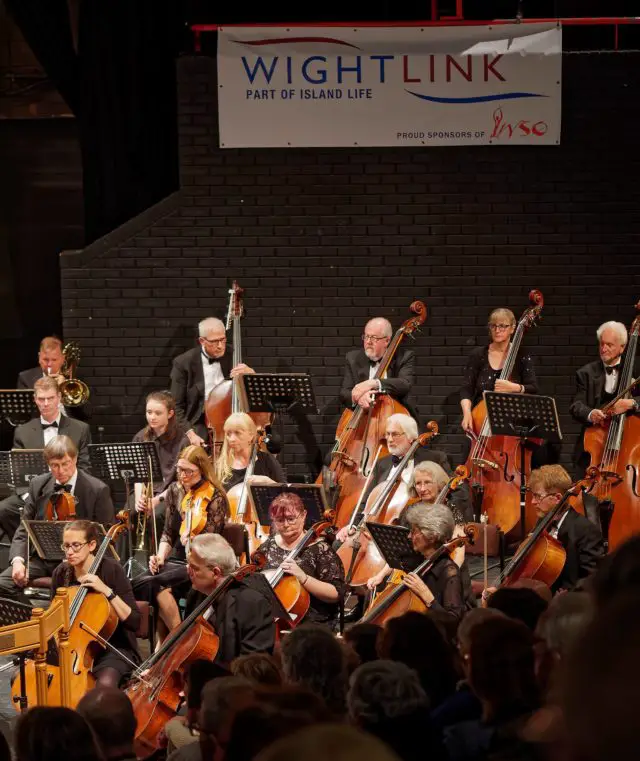
It felt like a young man’s symphony, working out how to express emotions musically, progressing through different themes and styles in the first three movements, all of which come together in the fourth movement, exploding with relief and joy and a sense of resolution. I liked it a lot, particularly the tunes in the last movement, some of which I think I recognised. I have to return to it now, to become more familiar with it. Once again, all the players performed beautifully, and there were many solo moments from members of each group of instruments that I enjoyed tremendously. I wish I was knowledgeable enough to be able to name them all here.
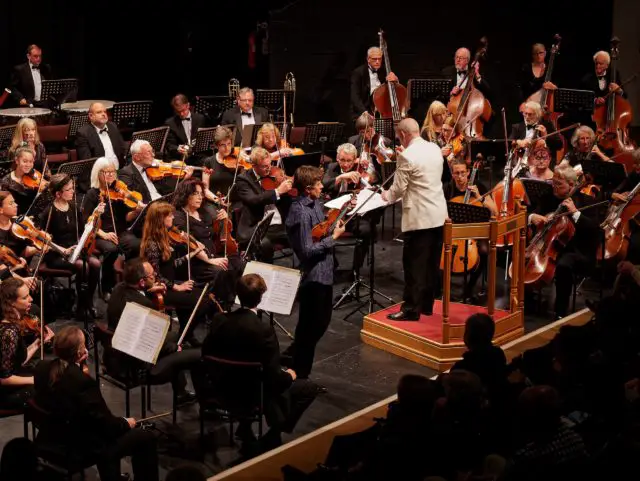
Thank you for a really memorable evening. I hope the lady who fell on the stairs in the interval recovered after the paramedics attended her, and I was delighted to see Mr Kliphuis himself playing in the orchestra for the Brahms symphony.
Next Concert
The next concert will return to its usual day and time on Saturday 9th July, at 7:15pm in the Medina Theatre. There’s going to be a variety of musical delights under the title of ‘Saturday Night Is Music Night’.
It will contain many favourite musical items, such as Offenbach’s ‘Orpheus in the Underworld’, Bizet’s ‘Carmen Suite’, and a Fanfare for Euphonium by Jacob. ‘The Blue Danube’ by Strauss, ‘Oxford Street’ by Coates, the ‘Danse Macabre’ by Saint-Saëns, ‘In a Summer Garden’ by Delius, will follow, and the finale will be the glorious ‘Capriccio Italien’ by Tchaikovsky.
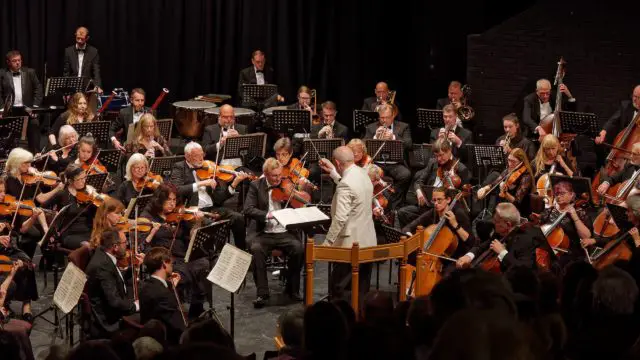
It’ll be a wonderful evening, full of delightful music. Grab your tickets while you can! See you there!
I would like to express my personal gratitude to Phillip Littlemore, whose erudite Programme Notes have helped me immensely in compiling this review.
Image: © Luke Meads

